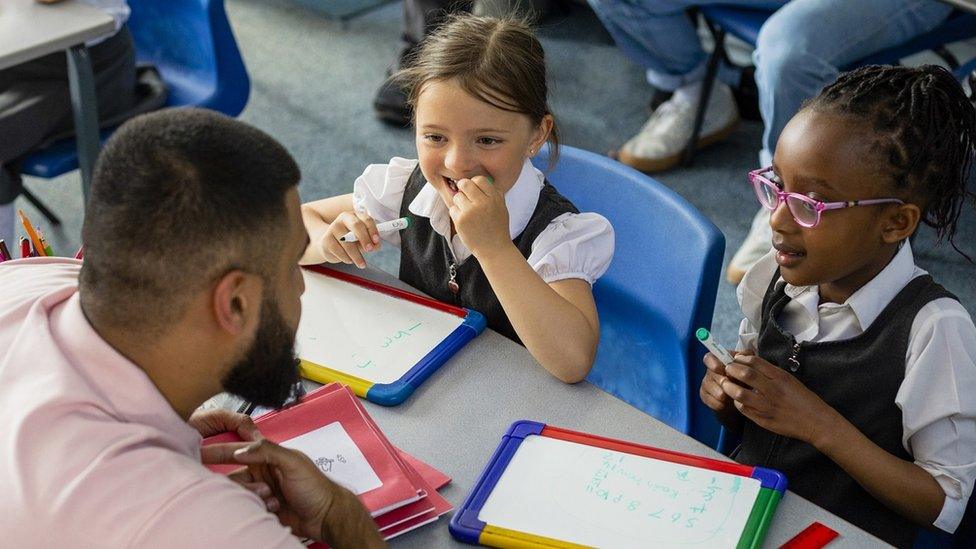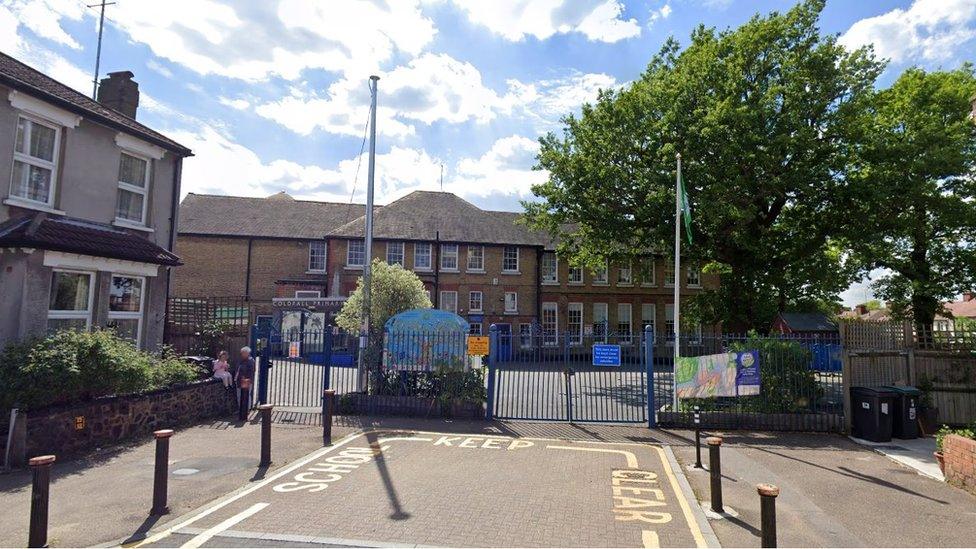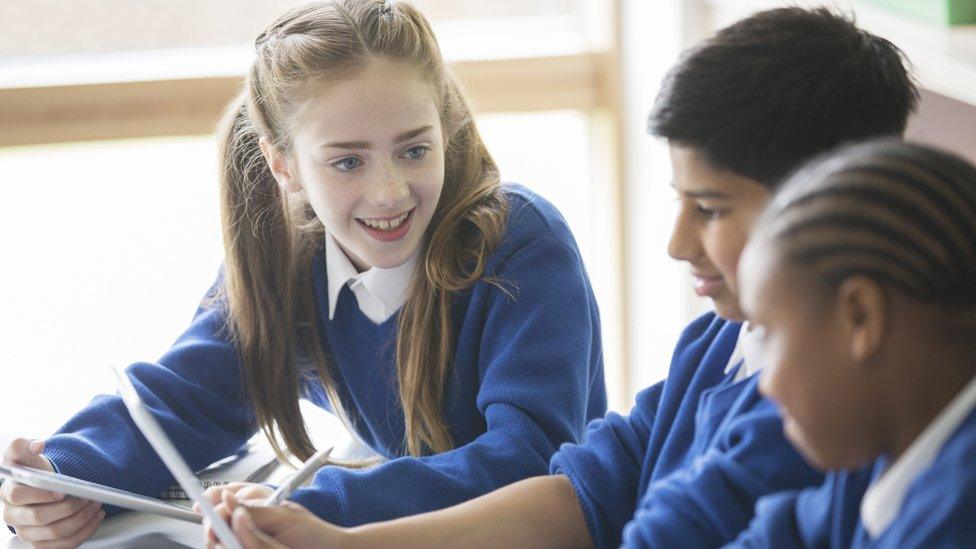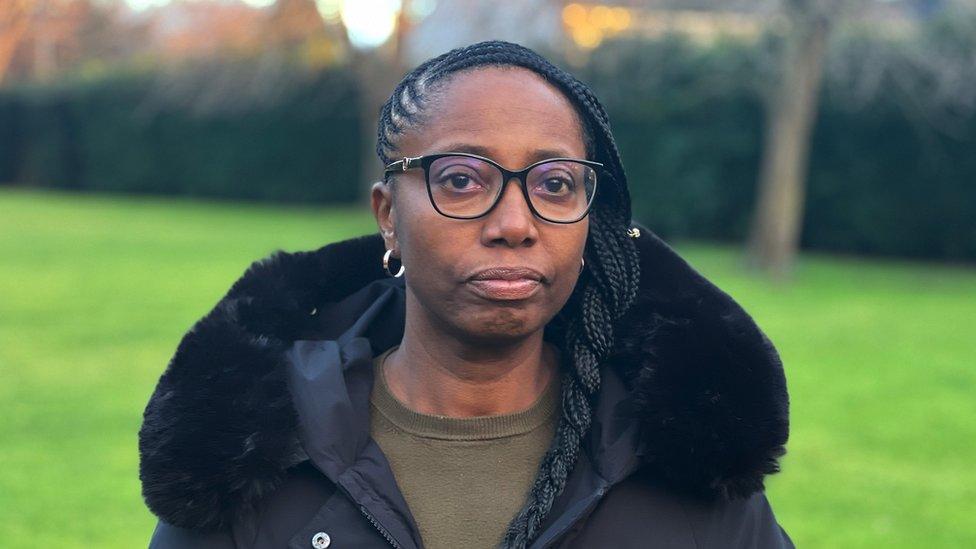Haringey Council defends black children's Saturday classes
- Published

Haringey has the largest attainment gap between Black Caribbean students and White British - stock photograph
School classes aimed at black children have been defended by a council amid complaints the practice is "divisive".
One parent with a child at Coldfall Primary School in Muswell Hill, north London, said it was discriminatory that Haringey Council was paying for black children to go to the Saturday classes.
An independent investigator did not uphold the claim.
The council said the initiative was aimed at black students but was open to all ethnicities.
Hosted by the NIA Academy, in partnership with the Haringey Education Programme, the two-hour classes on Saturday mornings are designed for underperforming children of African-Caribbean descent from year four (eight and nine-year-olds) to year seven (11 and 12-year-olds).

Coldfall Primary School says it has received threatening messages
The NIA Academy says it provides children with an "opportunity to learn about black history from a broader perspective than what is often offered in mainstream education" in order to "promote academic excellence within a strong cultural context, through which a sense of purpose, identity, and belonging will be emphasised".
Attainment gap
The cost to schools is £400 per child for 33 classes and there are currently four children from across Haringey who attend the programme.
In a letter to parents seen by the BBC, the school defended the classes, saying that data at Coldfall Primary School "unequivocally shows that there is an attainment gap between pupils of black and black heritage and their white peers".
Data shows that Haringey has the biggest attainment gap between White British and Black Caribbean students in the country.
At GCSE level, Black Caribbean students achieve an average of two grades lower on every GCSE than White British pupils, and below any other group.
Haringey Council's cabinet member for children, schools & families, Zena Brabazon, said: "Our schools here in Haringey and the local authority are absolutely determined to collectively do something about those statistics.
"The council has a number of targeted programmes for our young people to help them improve their attainment, including the NIA Academy," the councillor said.
'A frenzy of hatred'
One Coldfall parent whose child attends the classes told the BBC: "My son has thoroughly enjoyed these classes and he comes away feeling empowered after every session.
"He gets a sense of identity and he can share that pride that spreads into his own learning."
The woman, who wishes to remain anonymous after hearing that the school had received threatening messages, added: "We don't have a lot of money to invest in extracurricular.
"It's really sad that this has been turned into an insidious race thing."
She said the parent who had complained had "whipped up a frenzy of hatred" for a set of classes that costs the school £400 per child.

Haringey Council says it offers a range of programmes for underperforming children of all ethnicities - stock photograph
In messages seen by the BBC, the parent who submitted the complaint told other parents he had "spent eight months fighting the racialisation of the school".
Another parent whose child attends Coldfall primary told the BBC that while she had not made a formal complaint about the NIA Academy classes, she "believes there are more inclusive ways to use school funds".
She added: "I think the school fundamentally doesn't understand what inclusion is. Selecting a group based on race alone is divisive, not inclusive."
A spokesperson for Don't Divide Us, an organisation that contests the idea that Britain is systematically racist, said: "There is a common culture and a history that is shared by the majority, irrespective of colour or creed.
"As public institutions - paid for by the public - schools have a duty to facilitate such a common culture and knowledge of our shared history rather than creating divisions."

Follow BBC London on Facebook, external, Twitter, external and Instagram, external. Send your story ideas to hellobbclondon@bbc.co.uk.
Related topics
- Published31 March 2023

- Published28 February 2023

- Published22 February 2023
